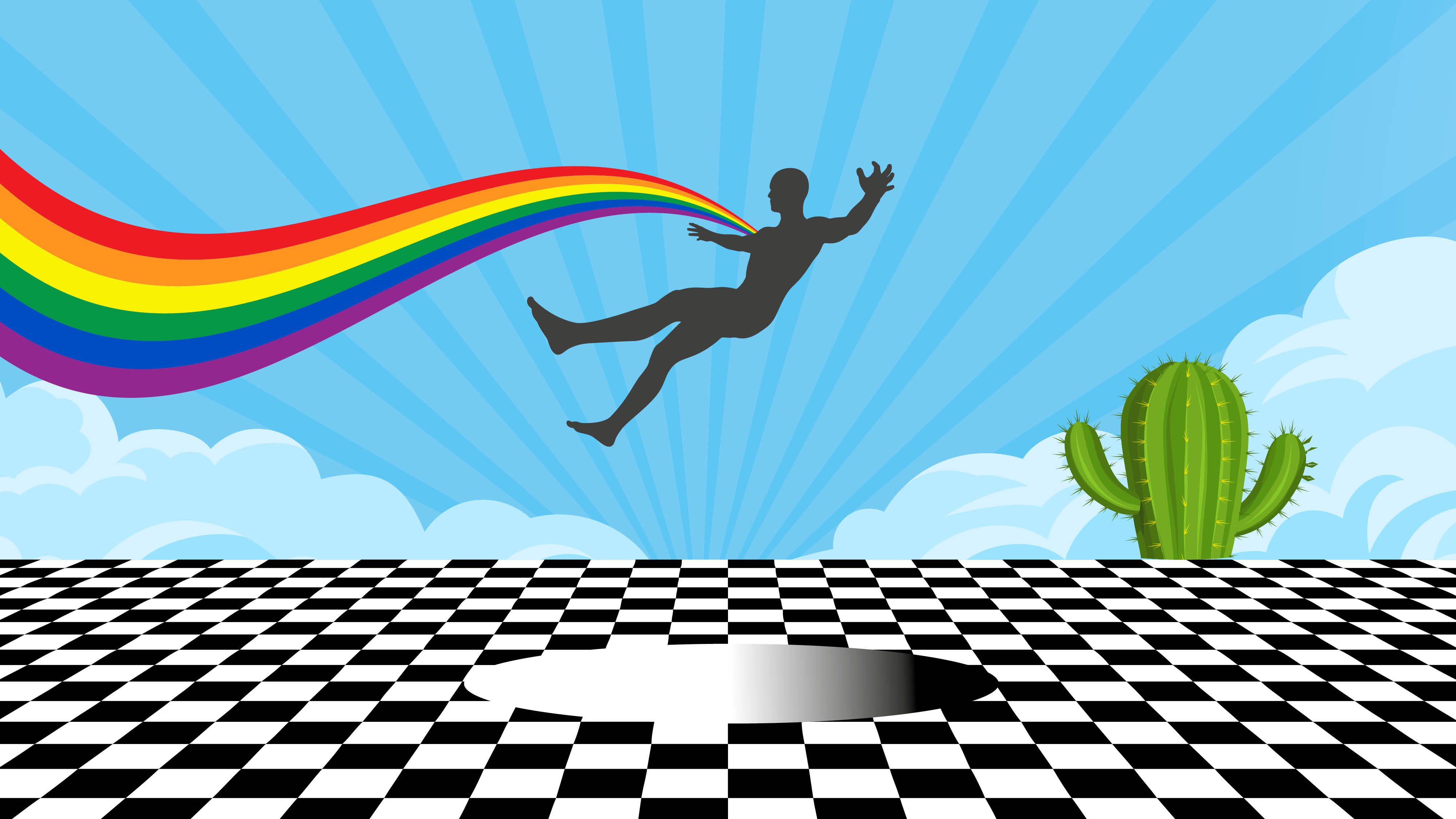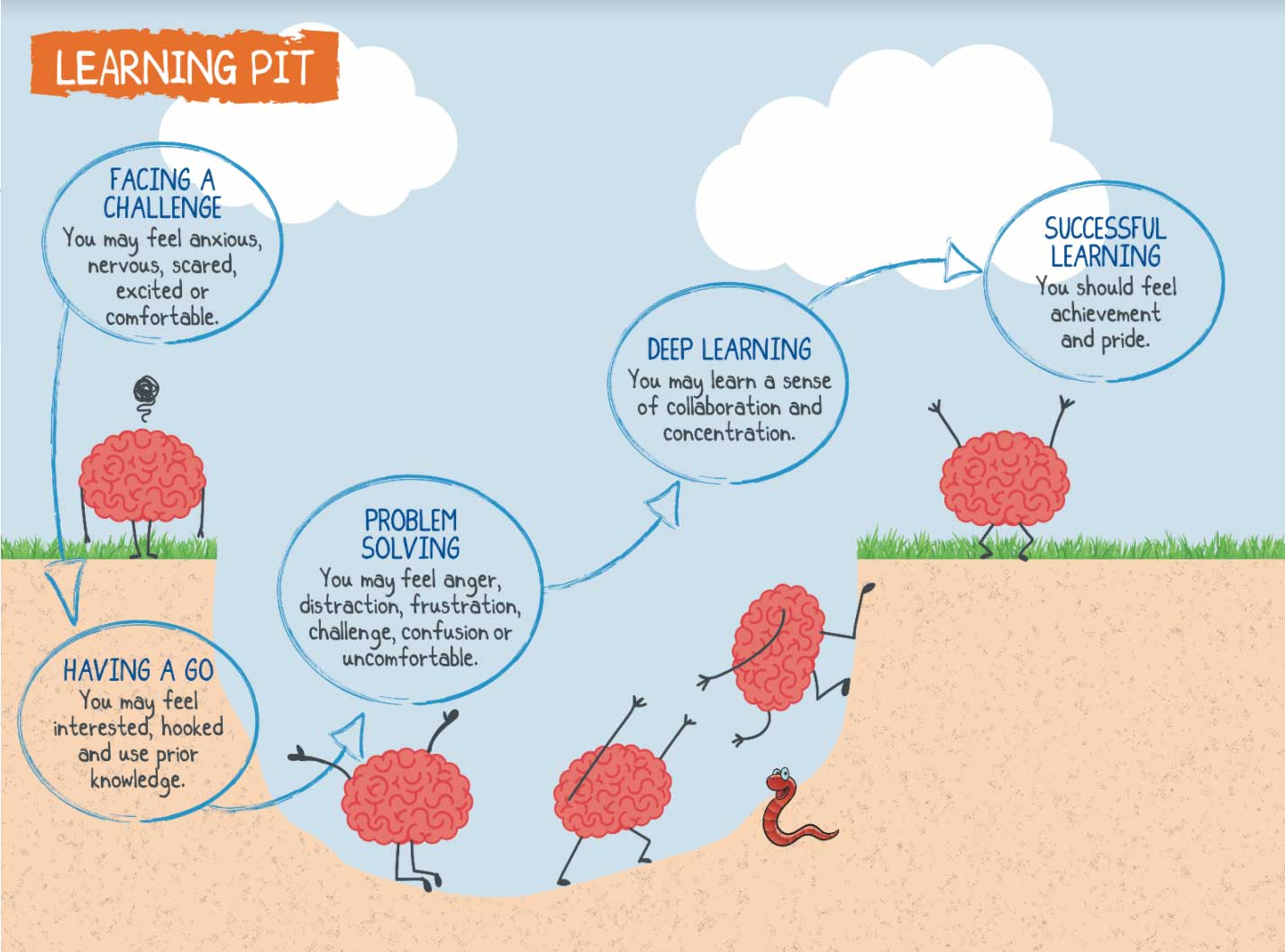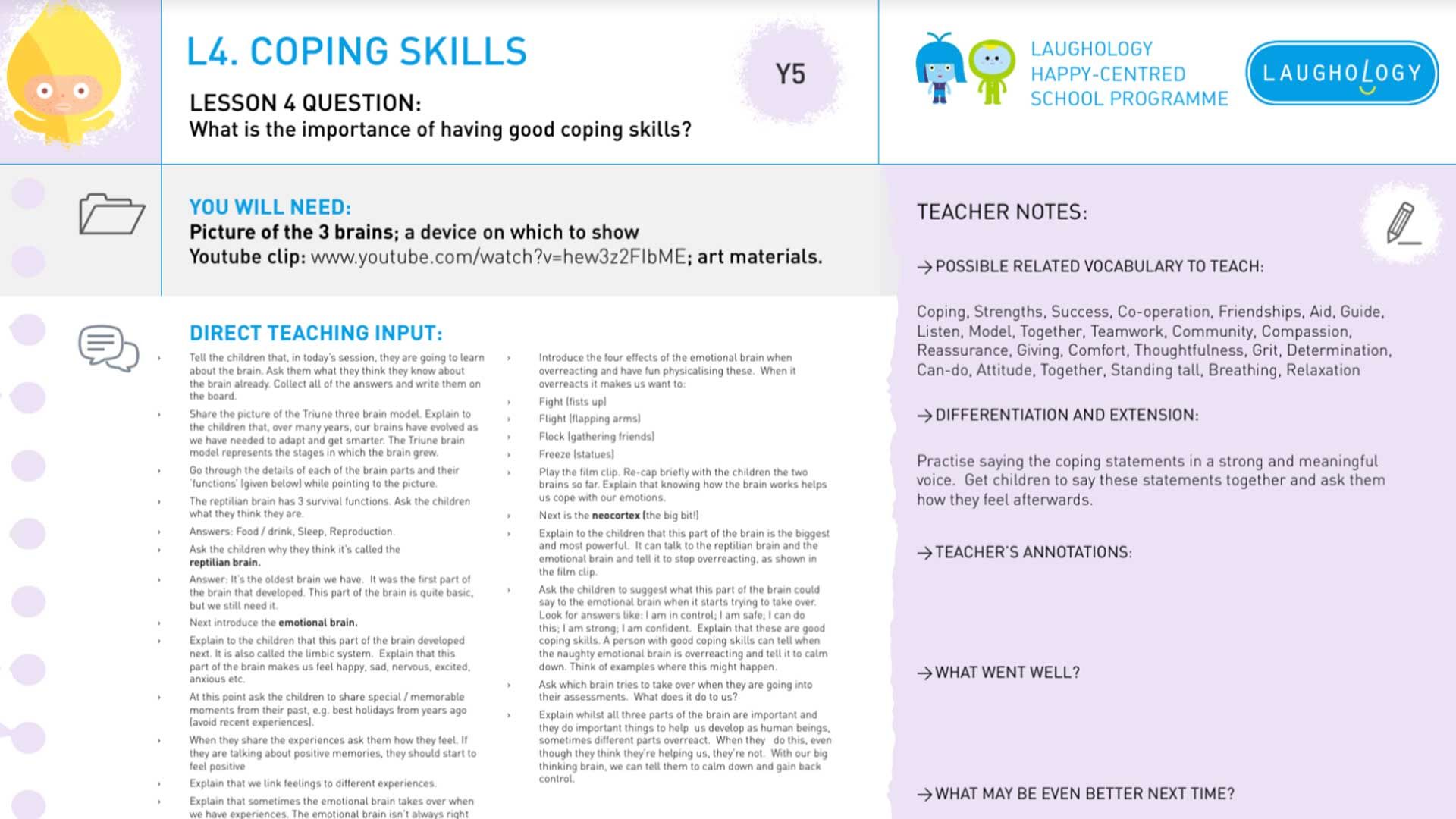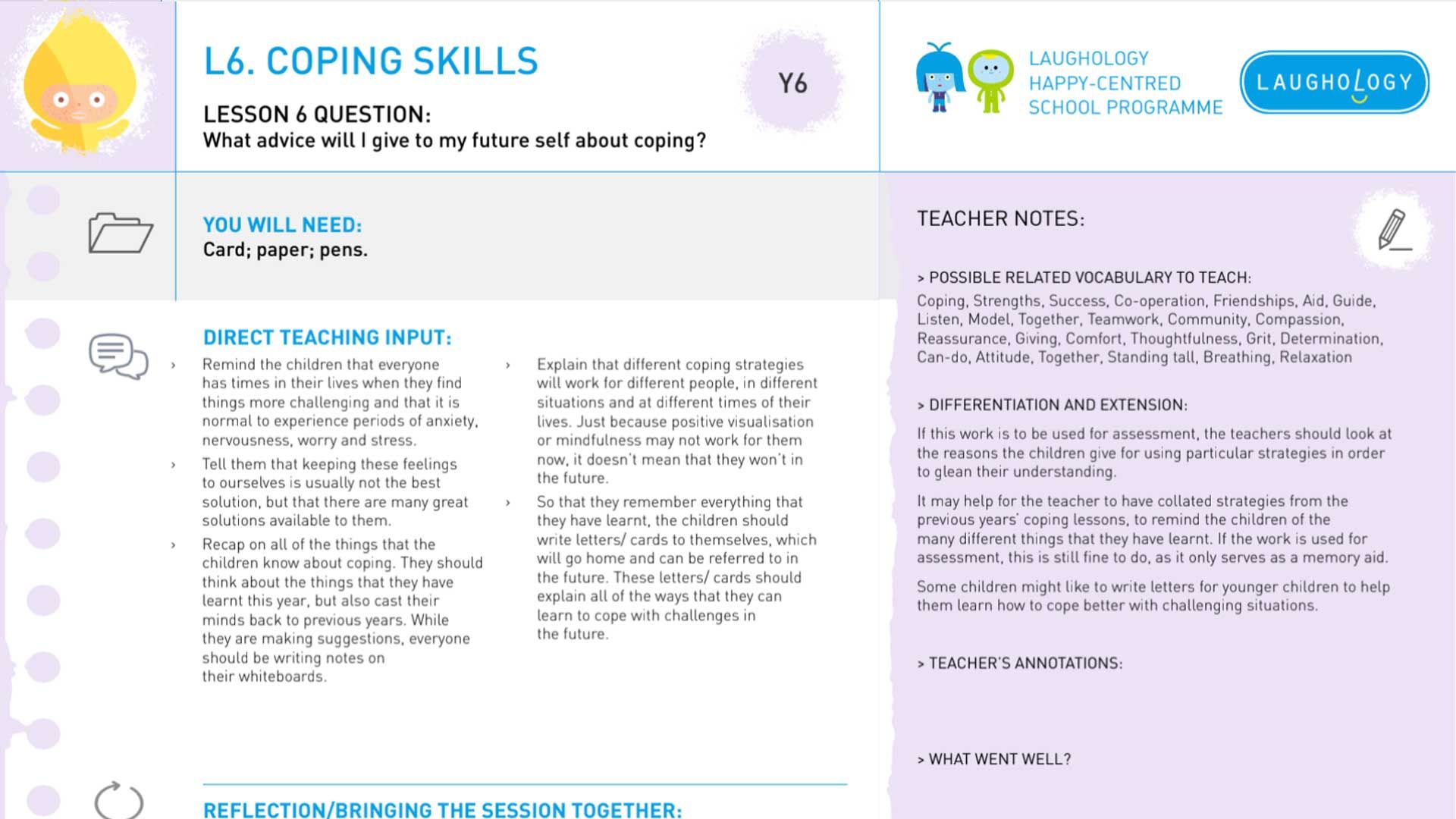Mind the Gap. Returning to school and mental health after Covid-19
Module 3 - REFLECTING
Watch
Introduction to Reflecting
Sarah Creegan explains why self-reflection is a great coping skill for children to have. She's been filming in and around her house for 10 weeks now, so we can only apologise for her garden-related gags!
Using Reflections as Learning Opportunities
Taking time to reflect on situations is a chance to engage our brains to think of learning opportunities. Take this challenge with Victoria Maitland to reflect on the last couple of months and shape your story.

Find out more about the Laughology Mind the Gap mental health virtual workshop ...
Read
TOP TIPS ON REFLECTION FOR SCHOOL STAFF
The most successful learners are reflective; they think about their thinking (metacognition) and they learn from their mistakes. If things go wrong, they don’t keep doing what they’ve always done.
Because that would be the definition of madness, right?
In this think piece on The Recovery Curriculum, Barry Carpenter and Matthew Carpenter recommend that, in order to reskill and rebuild pupils’ confidence as learners, it is vital that we make metacognitive skills explicit.
At Laughology, we have been running training sessions which look at the importance of self-reflection and metacognition skills – in adults and in children - for a long time now. Here are some ideas on how teachers can do this in their classrooms:
Developing Planning Skills
- Ask the children, if they’re faced with a new challenge, what helps them to learn? Make a big list of their answers. For example, they might say that they’d ask questions, they’d search the internet for ideas, they’d work with others.
- Then give out sheets of A4 paper and ask them to make a paper aeroplane. The chances are that everyone will just dive in, without asking how long they have, what else they can use. That’s because, when we feel slightly under pressure (even though it’s a fun activity), all of our great learning habits are forgotten.
- We wrack our brains for the one and only way that we know to make a paper aeroplane. Do I fold it here? Or here?
- Once everyone has their finished product, have a go at flying them. But then remind the kids of their earlier list. Did anyone check the rules? Did anyone Google ‘best paper aeroplane’? Did anyone choose to work in a team?
- Now, repeat the exercise, but explain that they have 10 minutes to plan what they’re going to do. Answer questions to clarify the task.
- Notice the differences in behaviours when they get making again. There’s likely to be far more chatting, collaboration and creative thinking.
- Their second plane may or may not go further than the first, but the aim is to draw out what they’ve learnt about the importance of planning.
Reflecting On Progress
When children are learning, it helps if they understand the stage that they’re at and the emotions they’re feeling. This Laughology slide explains ‘The Learning Pit’.

Ask the children questions to help them think about their thinking:
- Did you jump voluntarily into the pit – in which case are you more motivated?
- Were you nudged or pushed in by your teacher? If so, how do you feel? What can you do to feel more confident?
- When you thought you’d nearly got out of the pit, but then slipped back a bit because your theory didn’t work, how resilient were you? What if that happens again?
Evaluating
When things go well (and, sometimes, when they don’t), we tend to move onto the next thing, without any reflection.
- Build time into lessons for the children to think about their learning, their thinking and their emotions.
- Challenge any ‘wonky’, irrational thinking or catastrophising. If they think they’ll never be able to do something, then the chances are they won’t. (See our Growth Mindset module to help kids develop a can-do attitude)
- Ask them What Went Well (WWW)?
- Get them to suggest ways that it could have been even better (EBI).
Last, but not least, remember it’s going to take time. It’ll need the right mix of nurturing and support for kids to become independent learners once more.
We know school staff will get it right though – because you’re brilliant!
Read
TOP TIPS ON REFLECTION FOR PARENTS
Being able to reflect is a life skill, which helps us to cope. In the busy world we used to live in, many of us charged from one event to the next, without giving them a second thought.
For example, have you ever done or said something that you weren’t especially proud of? Of course you have, we all have! But, if we don’t spend time reflecting on our thoughts, actions and behaviours, guess what happens?
We do it again!
As adults, we can help children learn to self-reflect and continually develop. Here’s how:
Having Time To Reflect
- During lockdown, many of us have valued things that, previously, we may have taken for granted. Such as food, our health, family and friends. To support children’s mental health and wellbeing, build in daily opportunities to say what they’re most grateful for. Maybe just before bedtime?
- Watch The Great Realisation. Help your child to understand that they can flip their thinking from negative to positive through the way that they look at things and the language they use. (See our FLIP It Thinking module for more advice)
- Think about the big things that your family have noticed over the past few weeks. Bluer, less polluted skies? More wildlife? Chat about the things that you want to do to help the environment, going forward. Achieving a family challenge, such as ditching the car and cycling to visit grandparents instead, will support everyone’s physical and mental health. And contribute to the greater good.
Knowing When To Reflect
For a lot of people, including children, self-confidence may have taken a bit of a knock and anxiety levels have been raised because of COVID-19. If your child is upset or having a meltdown, now is not the time to try to talk to them – their brain will be in fight, flight or freeze mode.
Now is the time to give them a hug, if that’s what they want. Or to give them time and a safe space to calm down.
As life begins to return to normal, use Steph Caswell’s blog: Strategies to Develop Your Child's Self-Confidence to help reduce your child’s worries and support them to regain their confidence.
Using Positive Language
- Help your child to understand that sometimes we find it tricky to cope, which is normal and okay. Explain that we can all learn to cope better and help our bodies to release helpful chemicals, by doing things such as negotiating, exercising and having a giggle.
- Research shows that many of us don’t want our ‘new normal’ to be exactly the same as life before Coronavirus. As a family, take some time to reflect on the past 3 months. Ask What Went Well (WWW); what do we want to keep? Family walks, weekly baking?
- Until now, we weren’t used to spending so much time together so, in all families, there will be things that didn’t go as well! Don’t focus on the negatives of these situations, try to use positive language and think of solutions instead. For example, ‘So that everyone’s happy and we don’t have rows, it would be Even Better If (EBI) we all walk away.’
Then, when a similar situation arises, guess what will (hopefully) happen?
Do
Ed’s Thunk: Proud in Lockdown

Download...
DOWNLOADABLE LESSON PLAN FOR TEACHERS - Understanding Our Brains.
DOWNLOADABLE ACTIVITY FOR PARENTS - Making a Coping Plan

Download...
Coming up...
That's all folks, for our Mind The Gap: Back To School series.
All in all, during lockdown, we've created 4 FLIP It Thinking modules, 3 Home Schooling modules, as well as the Relationships, Routines and Reflections Mental Health and Wellbeing modules. Phew!
We hope they've been helpful and, if you'd like to know any more, just drop our Education Team an email: sarah@laughology.co.uk























